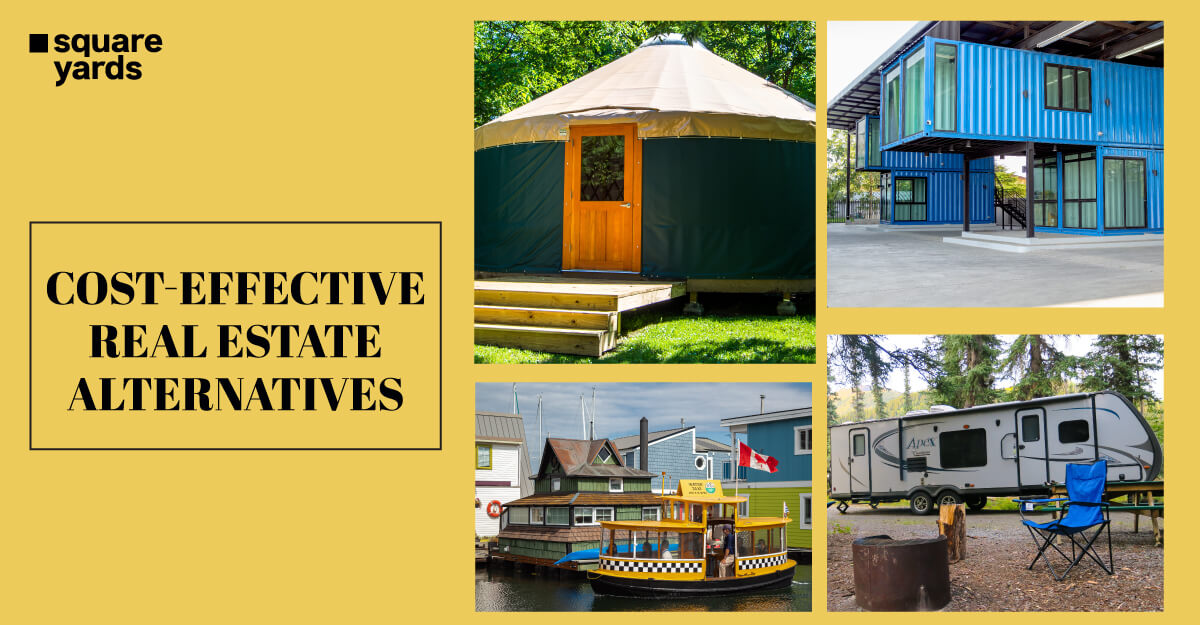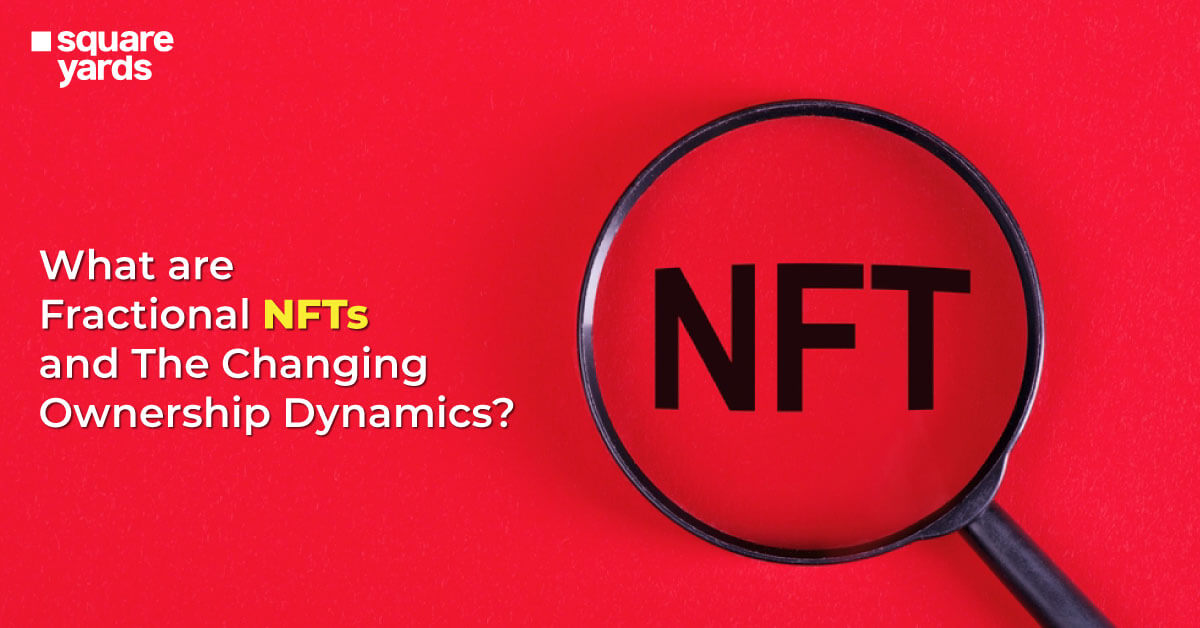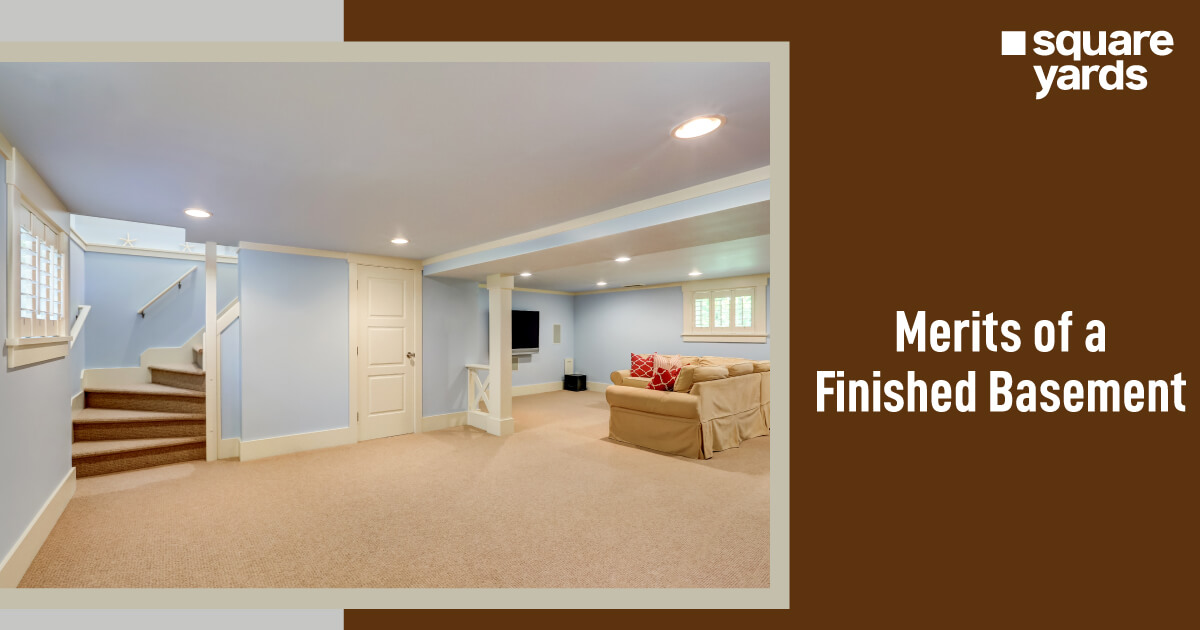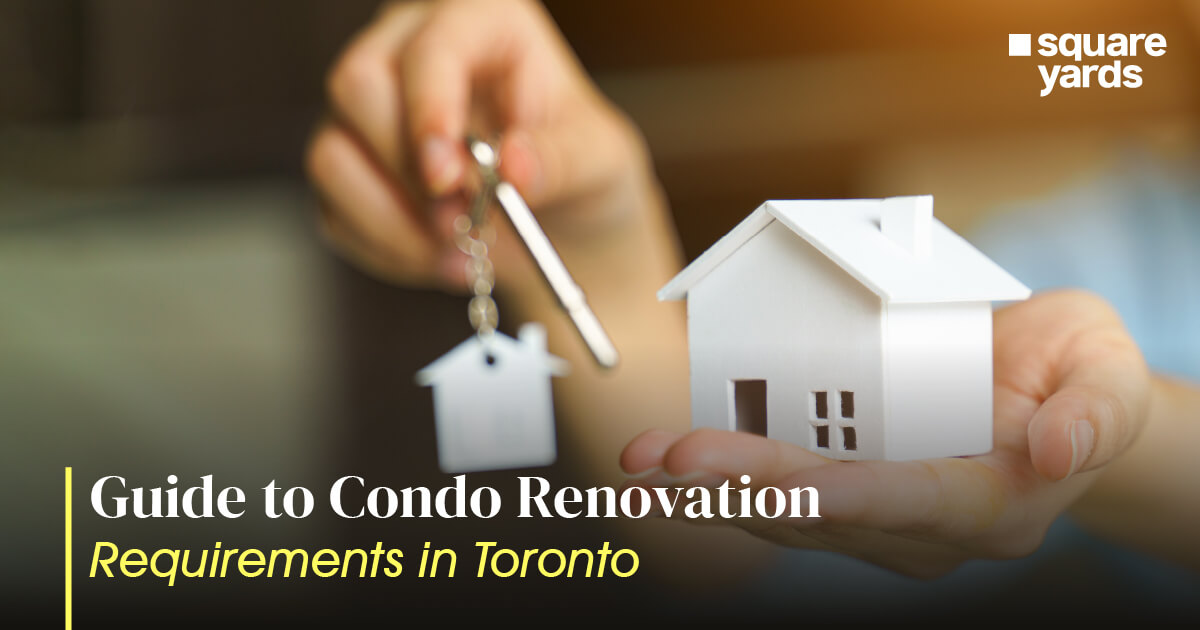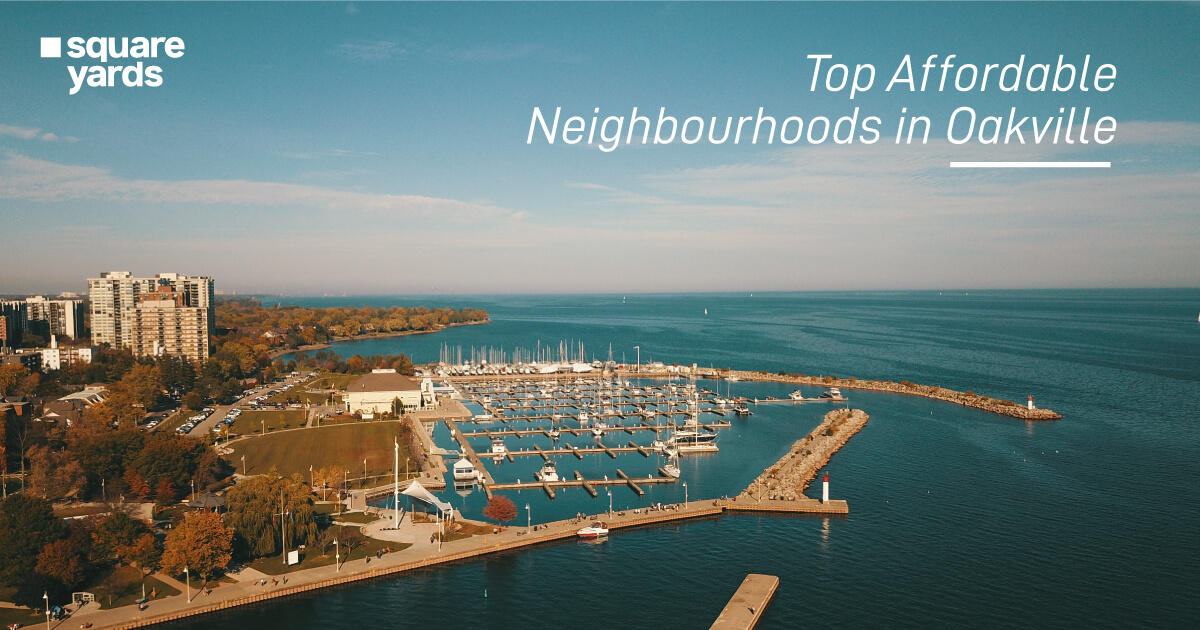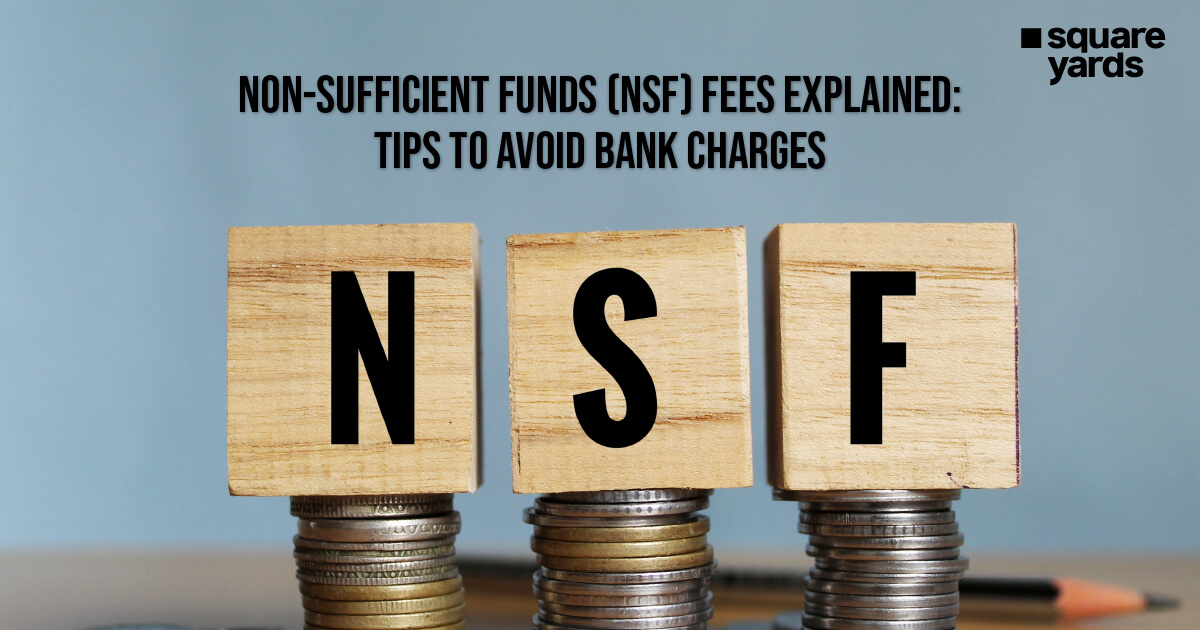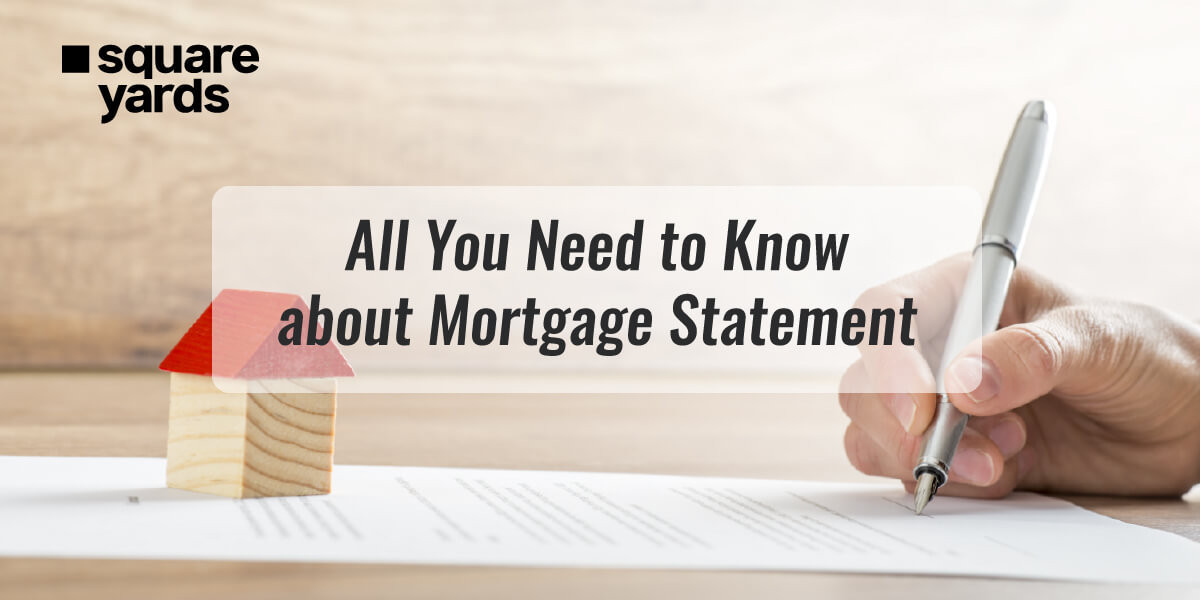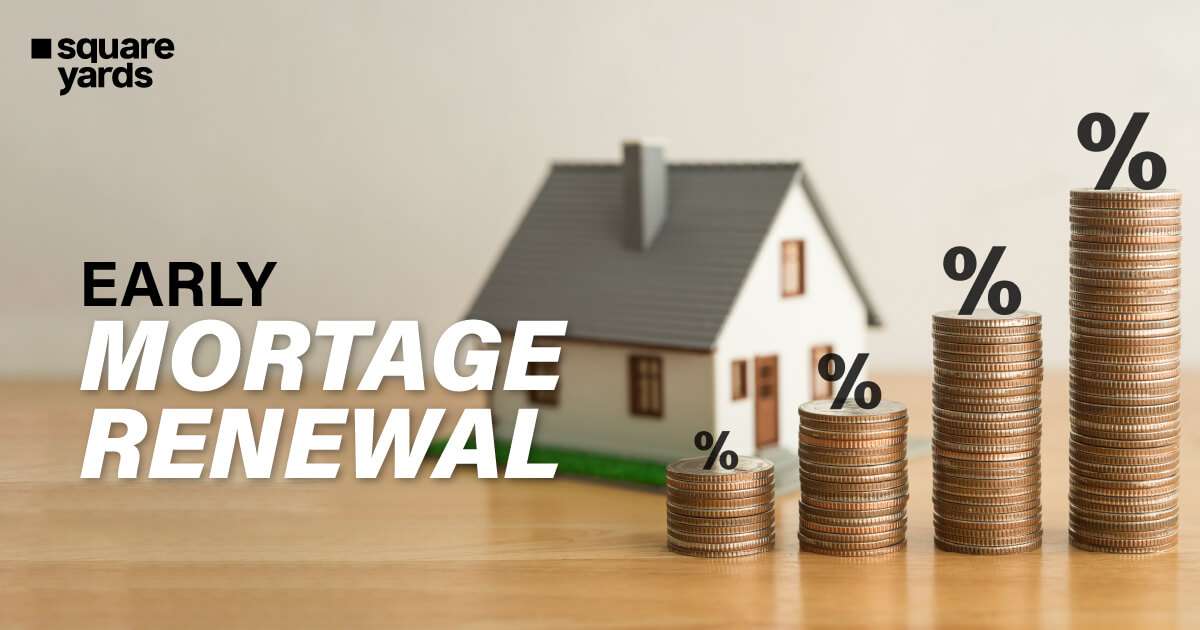It is fascinating that there are quite a few forms real estate housing can wear. While people are invested in looking for affordable houses that are traditionally acceptable, they are missing out on the fact that there are indeed an array of some house alternatives to real estate housing that one can also consider. Real estate generally means any building or land that can be used for residential, commercial, and industrial purposes.
However, we attach a specific meaning to residential properties when we describe our dream home. This piece will explore a few options suitable for a living, but one may consider them as something other than a real estate investment of Canada, at least in a traditional sense.
1. Simple Row Houses
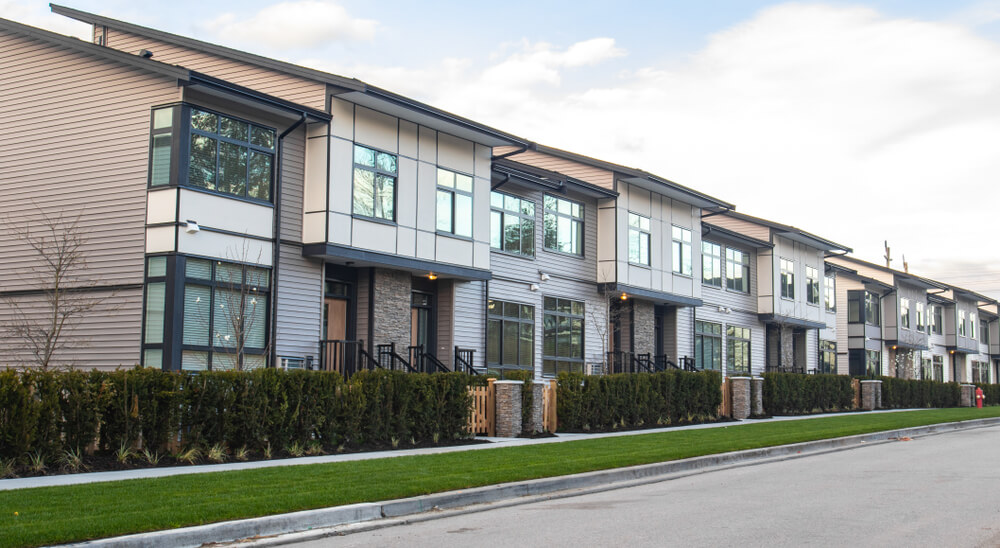
With types of detached and semi-detached houses in Canada being a niche option for residential units, people can think about simple tow houses. These row houses have a similar exterior as a townhouse, but row houses are built for single families and have multiple houses attached in a row. The architectural construction of these row houses is consistent, and the design is followed throughout every unit. These affordable houses are an alternative to detached and semi-detached housing types.
2. Co-Housing or Shared Home Ownership
Due to the Danish communities in the early 1960s, owning a house, co-housing or shared home ownership came into existence, where a group of families lived in a shared space. Co op houses types incorporate individual units of houses in a single shared piece of land. The major idea was to create a sense of socialness where multiple families reside in the same area. The design of the house is similar to that of a single detached home, which is ideal for a family per unit. This types of houses in Canada usually has the benefit of shared community values where families can plan meals, gatherings, carpooling, etc. Furthermore, although individual houses can be owned privately, the area is usually co-owned by housing cooperatives or associations.
3. Housing Cooperative (co op houses)
A housing cooperative is a statutory setup that is generally a corporation that owns a piece of land comprising multiple residential properties. They work based on membership granted to individuals or groups that purchase a share. These members are given the right to dwell in residential units. The residential properties can vary from townhouses to small building apartments. It is an excellent way to invest in a corporation and can be considered an alternative real estate investment.
4. Non-Profit Condos
Various organisations run housing foundations for non-profit reasons to facilitate people struggling to find homes. Non-profit condos can be utilised by anyone looking for affordable living spaces where the rent is usually discounted.
5. Laneway and Coach Homes
Laneway and Coach houses are a specific type of secondary housing unit generally built as guest houses or refurbished garage spaces. These can vary in shape and size and are usually an excess. They are often given out as a rental space for people rather than owning a house and are seen as a reputable source of extra income. Currently, in Canada, many provinces are following the trend where the government is issuing permits for people to construct laneways and coach homes to rent.
6. Container Home
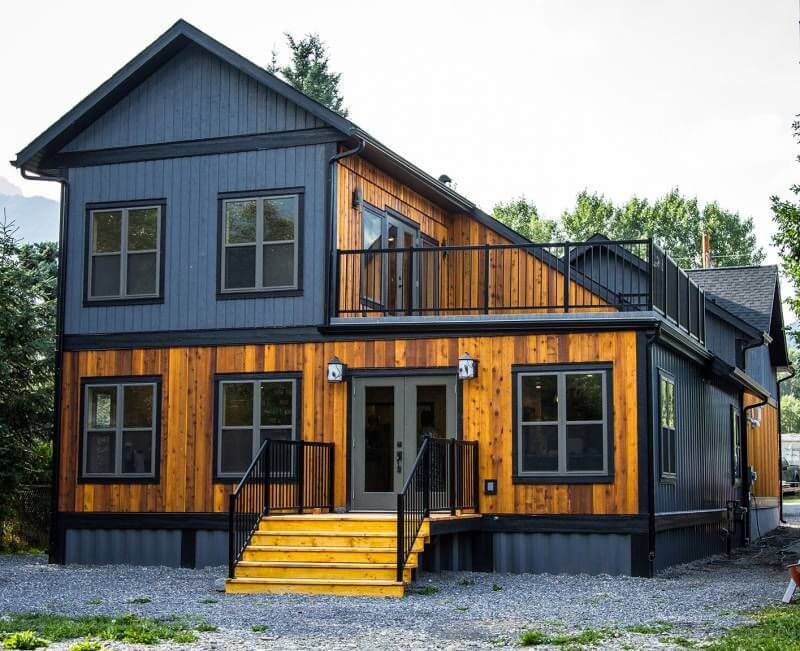
Yet another unusual type of housing people go for is the container home. These majorly incorporate shipping containers that can be a stand-alone unit or a merger of multiple containers to form a house. There are many reasons one might go for such a house. Firstly, the cost is predictable and effective. Moreover, one can use many prefabricated units to create a single modular housing unit. They can be moved around places and are also reliable in terms of durability. However, much work needs to be done about insulation.
7. Tiny Home
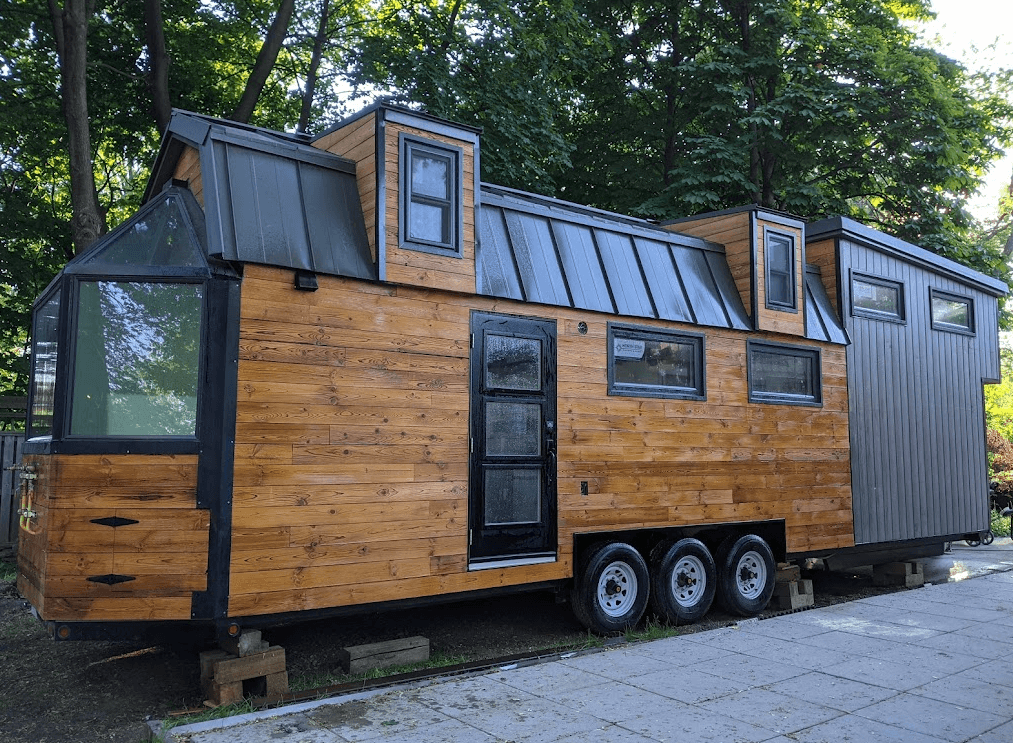
There was a genuine concern among a few people who advocated the motto of “living with less” on behalf of an environment-friendly solution for housing development methods and an affordable housing option for people without homes. Tiny home or micro houses is generally constructed on a maximum area of 400 square meters of floor area. Although several red flags were issued regarding safety and meeting regulatory requirements, they are still considered highly cost-effective.
8. Yurt
Yet another unusual choice of an alternative to traditional housing definition is the Yurt set-up, which is also popularly known as tents. These are not feasible housing ideas, but nomadic people incorporated them for temporary dwellings. The Yurt set is composed of a round tent shape built from skin or felt material. The frames are constructed out of wooden or bamboo material for sturdy support.
9. RV or Van
Even though the usefulness is acknowledged for this housing type, it is still a trendy alternative. In most pop culture movies, one may have seen an RV or Van transformed into a living space. The RV or the recreational vehicle takes the form of a motor vehicle that utilises a quarter of its space as a compact living room with basic facilities such as a bed area, mini cabinets, urinals, etc. There are various types of RVs, including trailers, motorhomes, etc.
10. Houseboat
As the name suggests, houseboats are a housing alternative that utilises boats for living space. The size may vary depending on the boat, which is designed to accommodate dwellers and is usually tethered so that one may have quick access to amenities.
Final Words
Real estate has enormous scope in terms of offering people a myriad of options to look for. With various housing alternatives, one might find solace in their unusual new home, living lavishly. Although they pose many challenges and difficulties, they also tend to have many pros. However, one needs to be smart about their investment choices and consider contemplating their living experience regarding alternative real estate housing variants.
You May Also Read :
| Famous Houses in Canada | Explore Famous Houses in Canada |
| Wooden Houses in Canada | Construction of Wooden Houses in Canada |
| Bungalow House Plans | Modern Bungalow House Plans |
| Homes in Canada | Popular Style of Homes in Canada |
| Tiny Homes Canada | Grand Life in Tiny Homes Canada |
Frequently Asked Question (FAQs)
Alternative in real estate can be understood in several aspects. Firstly, from the point of view of investment, one can think of alternative sources of investments other than real estate. In contrast, in a different sense, one can imagine an alternative to the conventional definition of a home purchase.
Co-housing is a unique arrangement in which multiple residential houses share a single land. A housing association or a body usually owns the land. The dwellers form a community where they collectively carry on their daily lives.
Society of Co op houses is a legal entity that owns real estate land comprising a few residential building units. These are eventually given to society shareholders, which they can utilise as a residential space for their families.
Prices, currently, have dropped relatively compared to the peak from February to August 2022 and now stand at a 15.6% drop.
There are a few options that can be seen as a cheaper counterparts to an apartment. These include container houses, yurts, tiny homes, houseboats, etc. What does alternative mean in real estate?
What is the meaning of co-housing?
What is the meaning of co op houses society?
Will home prices drop in 2022 in Canada?
Is there anything cheaper than an apartment?

